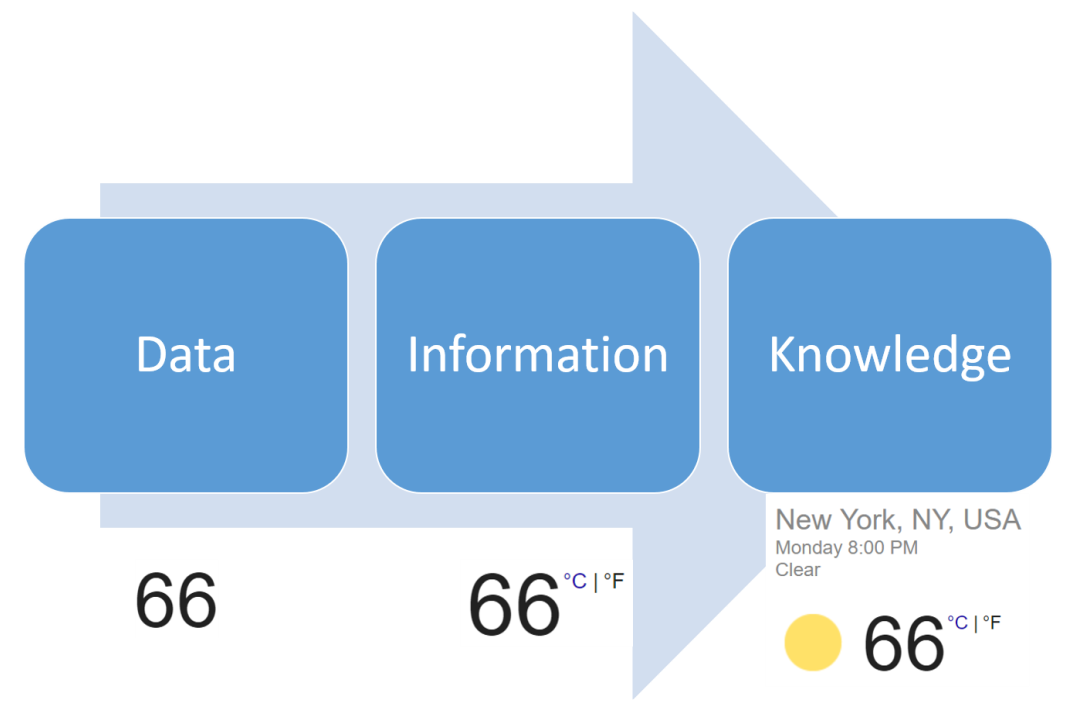Ontology of information science
Formally, the Ontology of information sciences is defined as: A formal naming and definition of types, properties, and interrelationships of the entities that fundamentally exist for a particular domain.
There is a fundamental difference between people and computers when it comes to dealing with information. For computers, information is available in the form of strings whereas for humans, the information is available in the form of things. Let's understand the difference between strings and things. When we add metadata to a string, it becomes a thing. Metadata is data about data (the string in this case) or contextual information about data. The idea is to convert the data into knowledge. The following illustration gives us a good idea about how to convert data into knowledge:

The text or the number 66 is Data; in itself, 66 does not convey any meaning. When we say 660 F, 66 becomes a measure of temperature and at this point it represents some Information...








































































